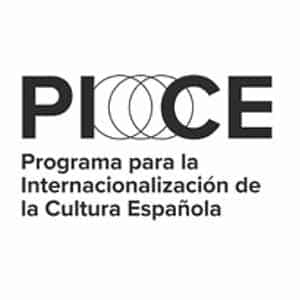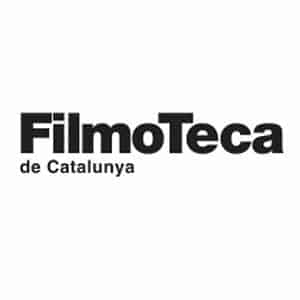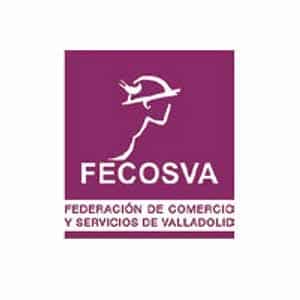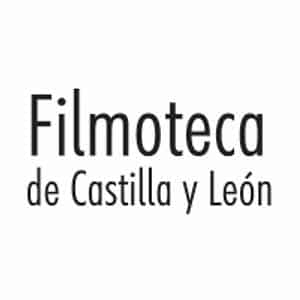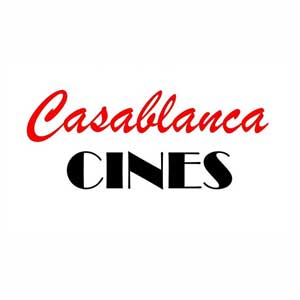The meeting “Film heritage in the 21st century” promoted by Acción Cultural Española (AC/E) on the occasion of the Spanish Presidency of the Council of the European Union raises the challenges facing the preservation and dissemination of film heritage
With many years of experience in the conservation of material, those responsible for film libraries and archives assume their “responsibility” in changing times in which they must face new media with uncertainty as to the techniques to preserve them.
The complexity of the current situation in this field is one of the aspects on which the participants agreed at the first session of the conference “Film heritage in the 21st century”, held this Tuesday at the Seminci by the main institutions involved in the pre+servation of the world’s film heritage, organized by the festival and part of the activities planned by Acción Cultural Española (AC/E) on the occasion of the Spanish Presidency of the Council of the European Union. A second session gave a voice to the festivals that program this recovered classic cinema, which they have claimed as “a living cinema”.
The curator of the activity, the director of the Filmoteca de Catalunya, Esteve Riambau, raised the issue at the opening round table, entitled “Film archives in the face of the digital dilemma”, with the participation of the director of Cinémathèque Suisse, Fréderic Maire; the director of Filmoteca Española, Valeria Camporesi; the deputy director of the Cinemateca Portuguesa, Rui Machado, and the member of the technical commission of the International Federation of Film Archives (FIAF), and Celine Ruivo. “We live in a situation in which we know that photochemical recovery works, what will happen in a few years… we’ll see,” he said. For the moment, what exists is a great “uncertainty around digital preservation”, “very complex” and very expensive; according to different calculations, up to “ten times more expensive”, he added.
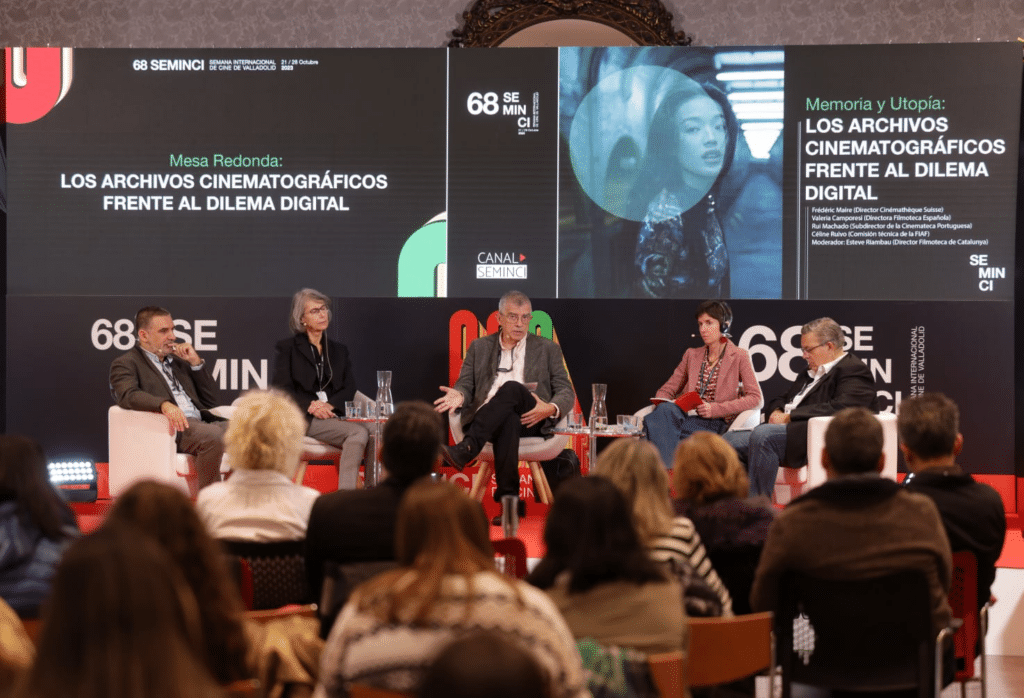
The deputy director of the Cinemateca Portuguesa has vindicated the role of film libraries not only for the work of preservation, but for a much broader task of which, as if it were an iceberg, barely ten percent of the total is seen. This work includes the search for film heritage, since, especially in countries where there is no legal deposit, apart from films supported by the State, not everything reaches the official archives and it is necessary to turn to other institutions that have funds. Although now the debate is in the field of digital, Rui Machado, recalled that professionals must have knowledge to preserve both celluloid and new media.
The director of Filmoteca Española, Valeria Camporesi, wanted to break with the stereotypical image of this type of institutions: “It seems that we are in the past, but we are also the future of the present, which places us in a situation of responsibility”. He has also insisted on the new challenges they face in terms of preserving the film legacy and not only in terms of costs. We have gone from the “comfort of photochemistry”, whose conditions of temperature or humidity are well known, to the “uncertainty” in the treatment of a material that requires enormous energy consumption, which has raised the need to “look for alternatives”.
The director of the Swiss Cinematheque, Fréderic Maire, was able to present a success story in terms of governmental involvement to meet the challenge, thanks to the construction of a building to integrate digital into the film library. But that does not end the problems, because, as he pointed out, it will be necessary to transfer these materials to “the new generation of digital”; “because, if not, in a few years these archives will not be readable”. Preserving this heritage “is not to store it in a closet and throw away the key, you have to clean and change the closet,” he said to highlight the need to “educate politicians” in this idea “to understand the fragility of this new memory of cinema”.
As representative of the International Federation of Film Archives (FIAF), Celine Ruivo recalled that the technical commission of the institution of which she is a member offers solutions to preserve films in developing countries, or places with very humid climates, and also faced the challenges of the new formats, which generate very heavy files that not all film libraries have the capacity to preserve. After pointing out the importance of the material support as a “source of preservation and knowledge”, he warned that “without budget and staff it is very difficult to work both in digital and analog”.
At the presentation of the conference, the director of the Valladolid International Film Festival, José Luis Cienfuegos, thanked AC/E for the initiative promoted in the framework of the Spanish Presidency of the Council of the European Union, which has given rise to this conference. “This project makes perfect sense in the Seminci, with 68 years of history and which takes care of retrospectives and publications,” he stressed before recalling that the festival has begun to “liberate” its library, digitized by the Municipal Archive of Valladolid. In the same vindictive line of film heritage, he has placed the section Memory and Utopia: “The festivals have to keep a space for the cinema of the past, because without it you can not understand the present”.
With the Filmoteca de Castilla y León hosting the meeting, its director, Maite Conesa, celebrated the fact that the Seminci has created a “very important space” that gives space to the institutions that guard, restore and disseminate film heritage. “It helps us to increase the diffusion of the treasures we keep, but it also increases our responsibility,” she concluded.



























